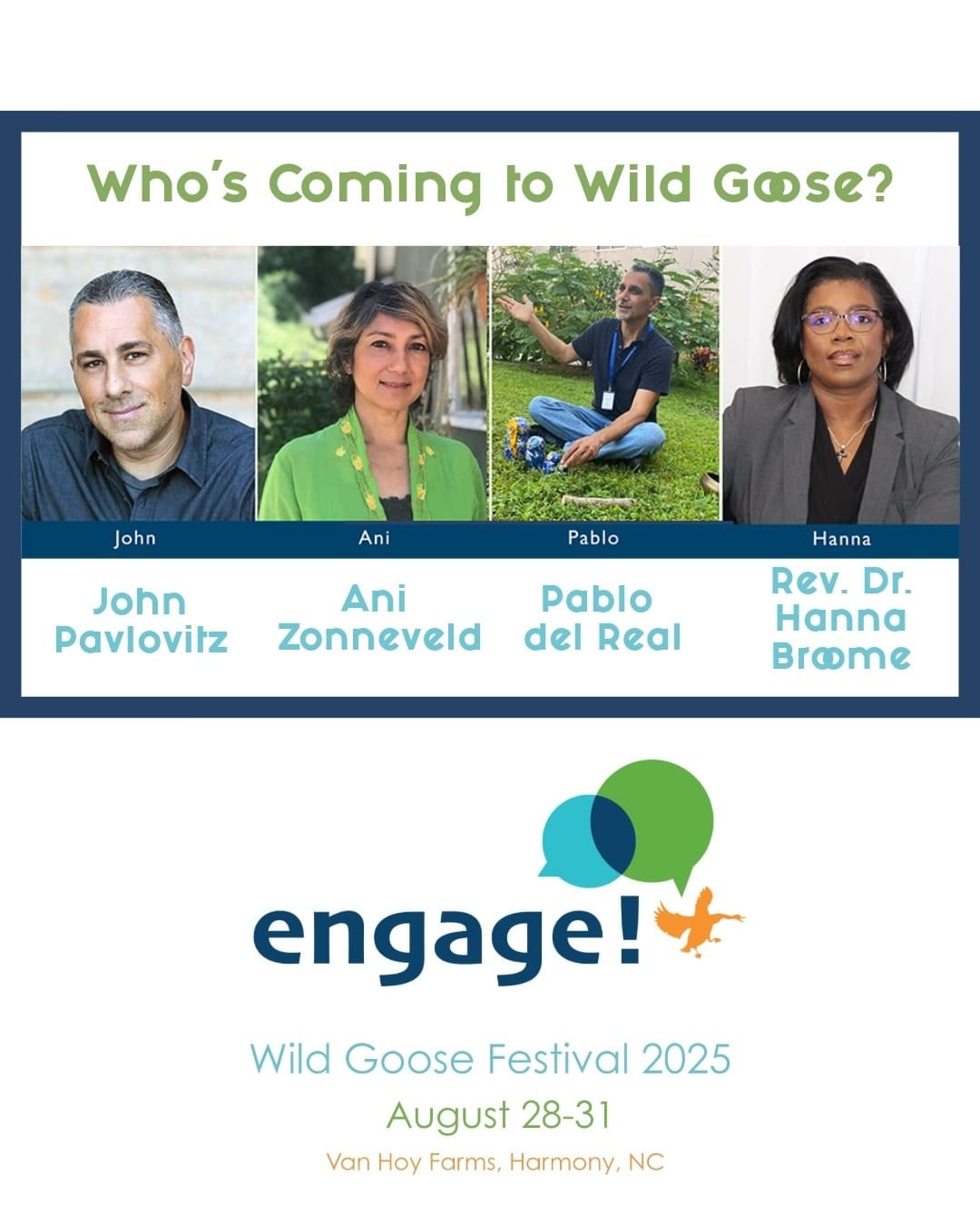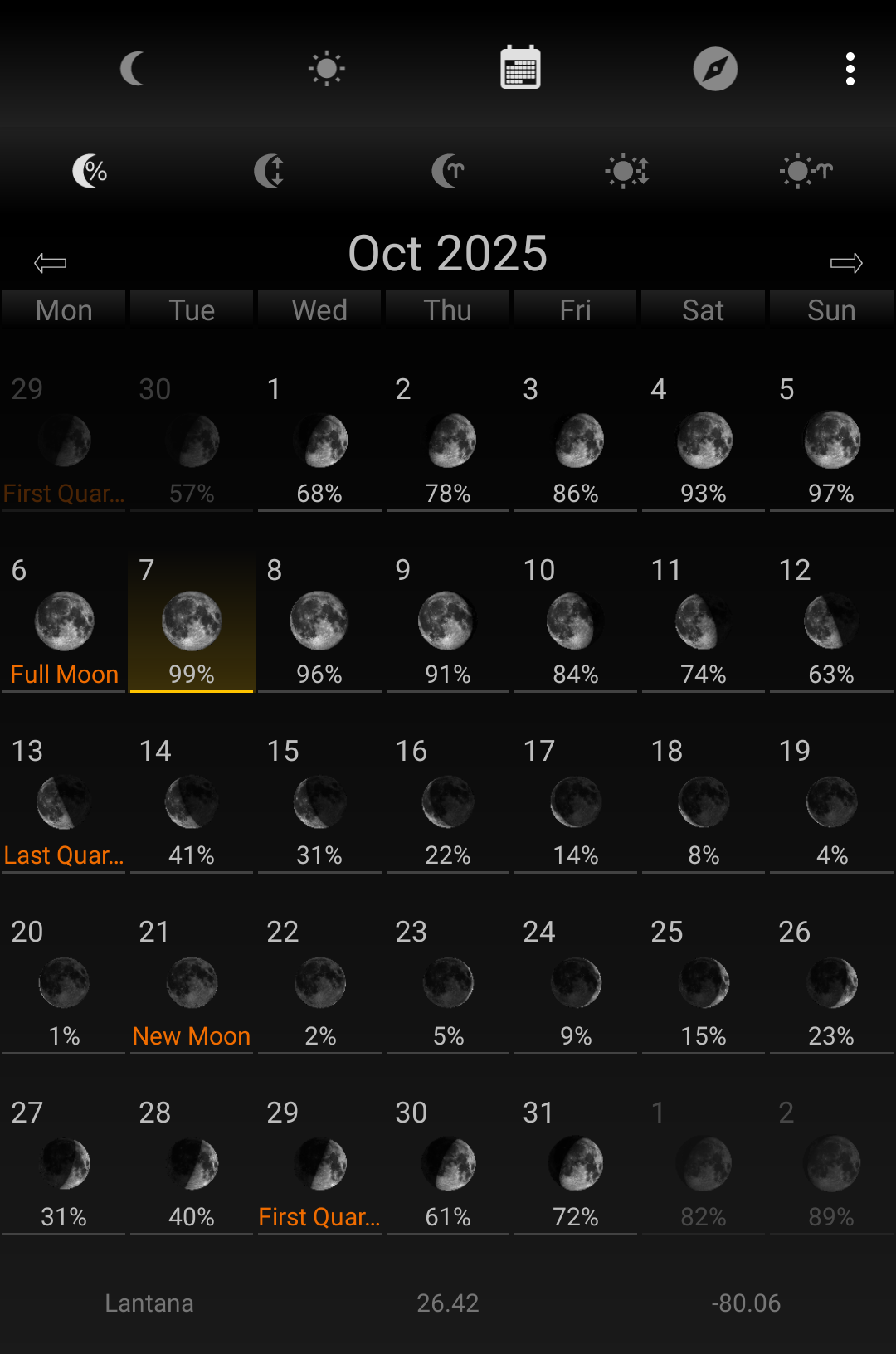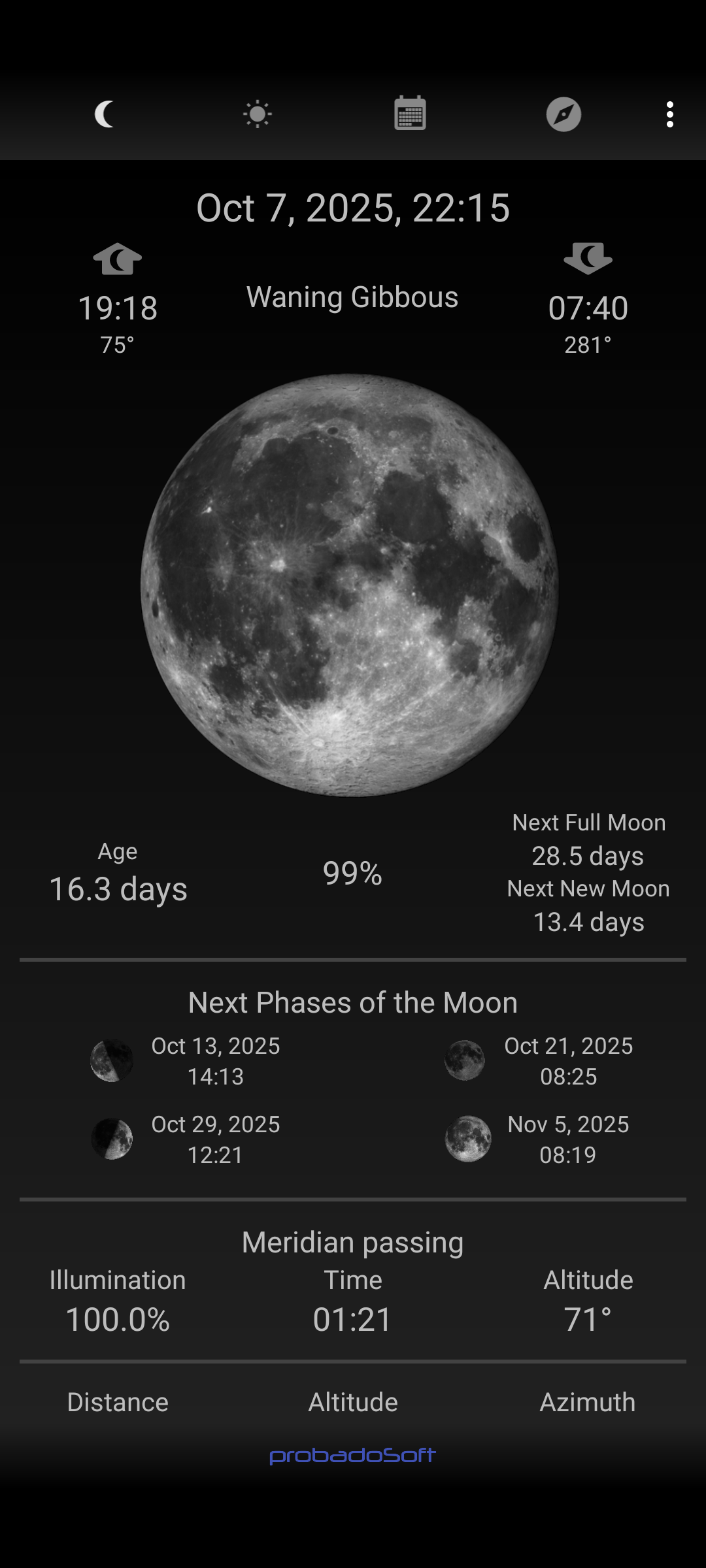Slow moon, Wild Goose Fest #3
Slow moon. Paying attention. Becoming what we behold. Wild Goose Festival #3.

Cosmos: Full moon. Sun fast (clock behind sun).
Slow moon
Judging by modern standards, I’m a little behind on publishing this essay. Since summer, I’ve been posting an essay on new moon and full moon days.
As we saw with the new moon, however, for ancient peoples – and even for some present-day wisdom traditions – the new moon is not merely a calculation on a calendar, nor a brief instant of time. Rather, it is an event in our ongoing relationship with time and space and must be seen with our own eyes to “count.”
Ditto the full moon.

Modern astronomers define the full moon as an instant in time, and most of us consider the moon to be full for one night in a month. Many ancient peoples, however, considered the full moon to encompass a three-day period because it appears full for several nights when it is illuminated more than 95%. That’s the case every month, including this month:
- October 05: 97%
- October 06: 100%
- October 07: 99%
Part of the mission of love god is to renew wisdom. And part of wisdom is a slow moon, one that is full for more than one night and also new for more than one night. May we appreciate the slowness of the moon: its fullness for three nights each month, and its newness for a three-night period as well.
So by ancient standards, I’m on time. A little behind, sure. A little slow, yes. But slow is smooth, and smooth is fast. Just look at the moon.

Wild Goose #3, paying attention, and peacemaking
At this rate, it’s going to take me 4-6 essays to fully review this year’s Wild Goose Festival. I think it’s worth it. Why?
As a mindfulness teacher, I am in the attention business. Mindfulness, by our definition, is the supervision of attention.
The poets who devised the English language said “pay” attention for a reason. It is our most valuable resource, our psychic currency.
Where would you be without your attention? It’s like saying, where would you be without consciousness? We need to manage our attention with care. You might even say we need to supervise it. : )
I could write about – and thus call attention to – any number of things with 4-6 essays. We have certainly explored issues large and small in the first 21 essays of this exercise, ranging from exiting capitalism to changing our words to address climate change. But paying attention to examples of what we want to see in the world is likely the highest and best supervision of our attention. Not ideas, but actual examples, the implementation of ideas.
Wild Goose Festival is one of those examples: a peacemaking effort that is rare, valuable, experimental, and fruitful. It has its challenges to be sure. In the midst of empire culture, most peacemaking efforts are in constant danger of disappearing or being disappeared. That doesn’t mean they are weak or unworthy of our attention. Rather, it means that they are risking much to offer something vital: a humane oasis of reconciliation and liberation, in contrast to the empire tempest of domination and oppression.
We become what we behold
“They became what they beheld,” says William Blake in his prophetic book Jerusalem. We too become what we behold. Attention is a kind of worship. What are we beholding?

What if we behold – pay attention to – a spiritual festival a little while longer? Will we become like a festive spirit, full of justice, music, and art? I hope so. There are worse things to become. And worse things to behold.
(BTW, these essays are 800-1,200 words. Spending ~350 words on attention in a festival review is a sure way to not complete the review in short order!)
Festival genesis and key elements
And actually, more than simply reviewing this year’s festival, I’m reviewing the experience, and with this post, a little bit of it’s history and purpose.
I’ve shared a bit about my reasons for attending and presenting at the Wild Goose Festival for the last five years. I’ve said little, however, about the organizers of the annual event and their reasons for starting it and maintaining it for over 10 years.
The Economist, reviewing the festival in 2011, its first year, noted that it filled a void.
At least 25 Christian music festivals are held each summer in America, but they have never catered for theological liberals. Until this year, that is, when the Wild Goose Festival — named after a Celtic symbol for the Holy Spirit — kicked off on June 23rd on 72 wooded acres in eastern North Carolina, not so far from the intellectual hub of Raleigh-Durham.

The idea, seven years in the making, was based on Britain's Greenbelt Festival in Cheltenham, which draws 20,000 people a year. About 1,500 people came to the American version, which explicitly pitched its appeal to artists and musicians, nonconformists, post-Christians, non-Christians, disaffected evangelicals and a liberal evangelical subset known as the “emergent” church.
The festival is nominally Christian, but that label is loaded, and organizers don’t use it much. Most people at The Goose don’t easily or readily identify themselves with any single label. In fact, many festival goers are looking for new language for their spiritual lives. The Goose is a place to try out and try on new language, both as a speaker and more often as a listener.
This is how festival organizers describe key elements on their invitation page:
Who are we? Wild Goose Festival is a transformational community grounded in faith-inspired social justice. ... we learn and grow by co-creating art, music, story, theater, and spectacle, engaging in a wide variety of robust, courageous conversations with each other and with thought leaders and artists from other communities.
Festival trailer (~90 seconds)
Who is invited? We are welcoming and hospitable to people of all faiths – or no faith – who join us in seeking the common good. We fully affirm and celebrate people of every age, ethnicity, gender, gender expression, sexual identity, education, bodily condition, religious affiliation, and economic background, particularly those who are most often marginalized.
What do we mean by faith-inspired social justice? We are rooted in progressive christianity. For us this means moving beyond belief to center ourselves in justice and compassion, to walk toward those in need and to solidarity with the marginalized and the oppressed, acknowledging our own privilege and actively working to use our power to alleviate suffering and achieve wholeness, and striving to create a world that works for all.
We take seriously the trauma and evil that has been done and is being inflicted upon our neighbors who are vulnerable — based on race, religion, identity, class, and other differences. We also take seriously the struggle of the privileged and powerful to fully grasp the reality of this trauma and evil. Knowing that absolutely safe space is impossible, we seek to create brave space where we can enter into needed conversations for mutual liberation. We realize that viable whistleblower disclosure and whistleblower protection systems are necessary for societal institutions to be trustworthy in discharging their responsibilities for our common good and that of posterity.
Festival explainer (~90 seconds)
Given this context, maybe now the initial itinerary I posted makes a little more sense. And maybe now, you will consider attending the festival next year, September 3-6, 2026. I hope to be done with the review by then, god willing! It’s a slow review. : )

Comments ()